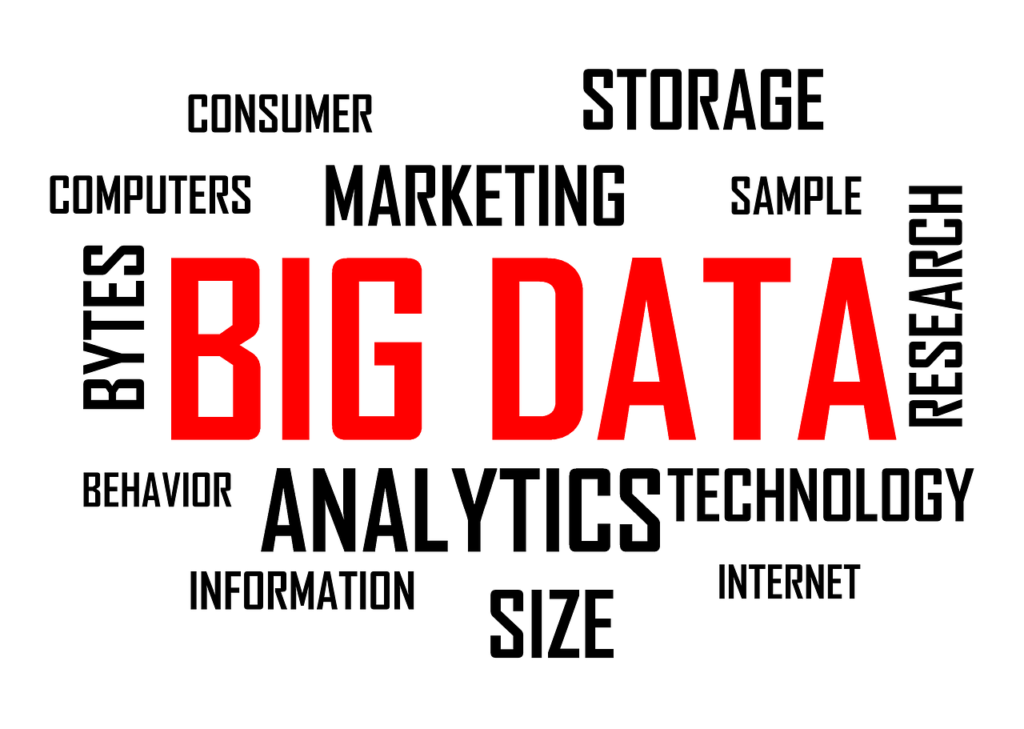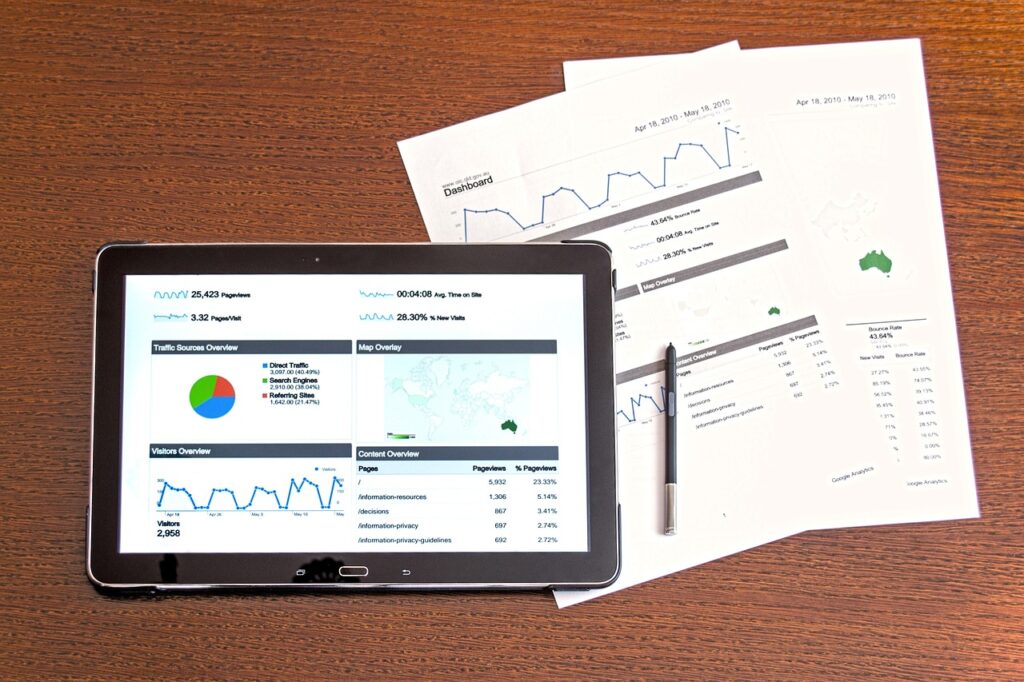Big data is a technology that helps organizations process their large volume of data and give more insights into information. Business information is the only way to know the future benefits, but due to the large volume of data in both structured and unstructured formats, organizations were unable to get more information leaving them to make less effective decisions. Many organizations fail to use this technology due to a lack of knowledge about big data and its features. This article explains about big data technology and the benefits of big data for business.
1. What Is Information?
Information is constructed in high volume through different technologies like social networking sites and other internet applications. Business organizations use this information to make decisions about their business operations, such as new product development, marketing, latest trends and technologies. Business organizations in the olden days used to use traditional methods to process data. They used to process only a few essential data sets that could bring them short-term success.
Today, organizations are using big data analytics and other artificial intelligence technologies to store and process a large amount of data and get more insights from their present data that could bring them both long-term and short-term success. Organizations can improve their weakness and use the opportunities to grow their business across the world.
2. What Is Big Data?
Big data means a large amount of data created by different machines, applications, and humans. It can be of any form, such as audio data, video data, images, text messages, and other information. To process this data, organizations use big data analytics tools like Hadoop that can help them get information about future risks, opportunities, and issues related to consumers, shareholders, and other stakeholders. This information helps the organization to improve its business productivity and revenue.

Big data technology is used in every field, such as in airlines to organize and sell tickets, in the investigation process to find criminals, in educational systems to improve education, in banking to process consumer data, and in other fields. This big data technology was founded in 2011. But, no company used it because of a lack of knowledge and the issues with this technology.
Today, some companies like Google, Yahoo, Facebook, and others companies use big data to get more insights about their customers and the behaviour of the market to improve their performance. They are using this to make effective decisions, and in the future, it will become as common as the internet. Big data have changed the business and management approaches used in the workplace.
3. What Is Big Data Analytics?
Big data analytics is used to process high volumes of data to help business organizations in their decision-making process. It has a great impact on business organizations. It has improved business operations and decisions to help organizations achieve their goals. Big data analytics helps organizations to explore new business ideas and conduct new business in the market.
3.1. Five Characteristics Of Big Data Analytics
Big data analytics depends on the following factors:
- Volume: The size of the data created from different resources and computer applications is denoted by the volume of data.
- Variety: The data is created from different machines and technologies, and it will be in various forms like audio, video, image, and text.
- Velocity: Velocity means the speed by which the data is created by the organizations, end-users, and systems.
- Veracity: Veracity means the quality of the data, so when the data is collected from different sources, the organization must test the data quality before processing it using a big data analytical tool.
- Value: It is the value of the data insights the big data technology provides to the firm. The value of insights depends on the veracity of the data.
Organizations need to take advantage of big data analytics because there is a continuous change in the market and consumers’ needs, which are to be met to achieve competitive advantages in the market. This big data analytics has impacted the business organization more, and it changed the thinking and decision-making processes of the organization.

Using big data analytics, organizations can get more insights from the reports generated by these tools, which give a glance to the management and help them make quick decisions. The management needs to gain knowledge about the technology before using it in their organization to get the expected results from it.
To use these technologies, organizations need to research the data and organize it, and that is the biggest challenge they face in using big data analytics. Big data analytics helps organizations adopt the changes quickly without any loss to the firm.
4. Lifecycle Of Big Data
- Creation: The data is created by the end-users, organizations, and systems. The data is stored in a digital format using different applications like social media, emails, and other applications. The data will be presented in an unorganised format, which is organised before using the big data analytics tools. These organised data will be created and analysed using one of the big data analytical tools like Hadoop, which is open-source and free to use.
- Process of data: Using traditional methods of processing takes a lot of time and money and gives fewer insights from the processed data. These data will lead to poor decisions. To overcome these disadvantages, organisations are using big data analytics, which gives more insights by processing the data and reduces the cost of processing.
- Output: To get accurate output from the big data analytical tool, the organization needs to give accurate data in an organized manner. This output of big data analytics helps the organization to make effective decisions without any difficulties.
- Resources and processes: Big data analytics must be used by experienced persons like data scientists who can categorize the data into different sets and query the data to get more insights.
5. Big Data Analytics For Business
Big data analytics is a method used to analyze a large set of data in order to generate reports and maps to influence business decisions. The big data analytics tool uses other latest technologies like machine learning, data mining, text mining, predictive analytics, memory analytics, and other latest technologies to organize the data by recognizing similar data patterns, separating structured and unstructured data, analyzing the handwritten text on networking sites, and predict the future.
It gives managers and decision-makers hidden information on their topic to help them in decision-making. Some of the goals of big data analytics are
- Cost reduction: Big data technologies like Hadoop help organizations reduce the cost of storing and processing large amounts of data. This technology also provides efficient ways to do business.
- Time reduction: It reduces time to calculate and optimize pricing within seconds.
- Supports internal decision-making process: with big data technology, organizations can make effective and quick decisions by analyzing the real-time data that can benefit organizations.
- New opportunities: big data helps to explore new opportunities and provides offers to organizations to grow their business in the market.
6. Benefits Of Big Data For Business
- The biggest benefit of big data is that it helps in managing and analyzing large amounts of data.
- Business organizations are using big data in various fields such as research, information technology, product development, marketing, pricing, and others to ensure the meeting of business goals.
- It helps to increase customer satisfaction.
- It helps business organizations to make real-time decisions.
- It enables to presentation of complex data in a simple and understandable format.
- The big data analytics software is easy to use and understand.
- It ensures the accuracy of information. Information accuracy ensures accurate decisions and benefits organizations in many ways.
- Big data analytics provide competitive advantages to organizations by giving information about competitors.
- Decisions are improved and have positive effects on the organization.
- The previous reports are analyzed to increase the performance of the organization.
- It uncovers hidden patterns and information.
7. Challenges To Big Data
Every technology has both benefits and challenges. In the context of big data, privacy and security are key factors maintained. In addition, intellectual property is the most challenging area to be considered. It becomes challenging for organizations to store dynamic data. Management of the large volume of data becomes complex for organizations. Employees and other stakeholders who have access to the data can misuse it if their access is not controlled.
Different algorithms are required to analyze different types of data, which can reduce effectiveness while using multiple algorithms. Cloud computing provides storage to store large volumes of data, and there is a chance of social engineering attacks on the data. Organizations must choose trusted service providers to store data in it.
8. Conclusion
Big data analytics is an ongoing technology that is creating many opportunities for the organisation. The technology provides many benefits and long-term success to the organisation, even though they face challenges like meeting the compliances and regulations, ensuring the security of the processed data, and others. Before using this, the manager and the employees need to be trained on technological usage to remove these challenges.